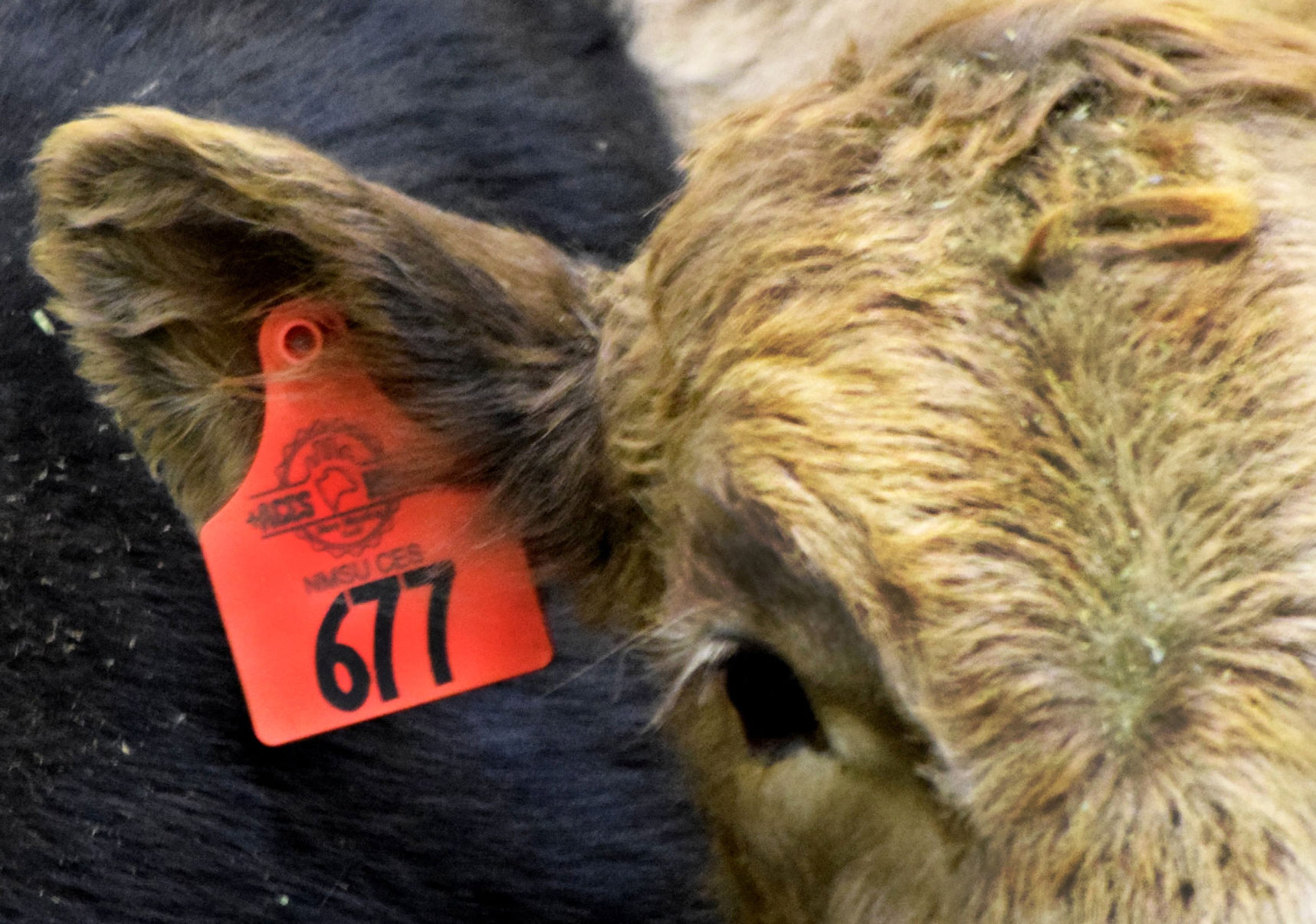Getting the best price possible at the sale barn is the goal of cattle producers. It can be tricky with the constantly changing market prices. However, a value-added program is a marketing tool that helps producers earn more dollars for their operation’s bottom line.
New Mexico State University’s College of Agricultural, Consumer and Environmental Sciences has established ACES High and ACES High+ calf certification programs to help producers prosper in the competitive market either through private sales or at area sale barns.
“By participating in the ACES High and ACES High+ programs, producers have a better chance of obtaining top dollar when they sell their calves,” said Craig Gifford, NMSU Cooperative Extension Service beef cattle specialist.
Through the program, the producer adheres to the Beef Quality Assurance standards and follows a proven vaccination/immunization protocol. Plus the calves’ age and source verification are registered with IMI Global, a beef verification service that qualifies the beef for international export.
“With the involvement of the marketing program, ACES High should help us get better prices,” said Ft. Sumner rancher Pow Carter. “That’s basically what we are after.”
Following the first year’s sale at the Clovis Livestock Auction, Carlsbad rancher Fred Beard said he was pleased with the results.
“My 500-pound steer brought $826 and I’m real proud of my heifers,” Beard said. “I’m going to continue with this program. I think it’s worth it.”
Gifford tallied the ACES High prices compared to the value sale calves and non-value sale calves to see how the program’s eight producers did overall.
When the ACES High calves were compared within individual 50-pound weight classes to other calves sold that day, the average price per hundred pounds premium ranged up to $29 in steers and up to $25 in heifers.
“As a whole, steers in the ACES High+ program average a premium of $6.37 per hundredweight above the sale barn acclaimed value added calves and brought a premium of $14.51 per hundred weight above the non-value added calves,” Gifford said. “Taking into consideration the costs of vaccination, and age and source verification, the net premium for a steer calf ranged from $13.38 to $124.12, factoring in its actual weight.”
What brings the higher price at the sale barn is that the animals have age and source verification registered with the U.S. Department of Agriculture data system. This allows the U.S. Meat Export Federation to sell the final product of beef internationally where the markets bring top dollar.
“Usually having this verification is not financially feasible for herds of 50 or less calves because of the flat ranch fee, but IMI Global has adjusted their fees for the ACES High participants to a per head fee,” Gifford said.
Another factor affecting the sale barn price is the physical condition of the animal. Bovine respiratory disease remains the largest challenge facing the beef industry, and calves who contract respiratory disease are a major revenue loss for feedlots.
To ensure the quality of the beef, ACES High requires the producers to practice Beef Quality Assurance standards and a prescribed vaccination protocol. Both the BQA training and the protocol are provided by John Wenzel, NMSU Extension veterinarian.
In promoting the protocol,Wenzel explains that producers are not just vaccinating the animals at branding, weaning and 45 days after weaning, but if it is done correctly it is providing an immunization that helps the calf remain healthy.
“Things like vaccination programs are going to become so much more important because of the scrutiny of the use of antibiotics,” Gifford said. “John Wenzel designed this protocol so that antibody against respiratory viruses should be really high the day of sale and transportation to the feedlot, so the calf has the best protection possible for the next week or two allowing the animal to cope with both the transportation stress and exposure to any pathogens. They should be healthy calves.”
Looking to the future, enrollment in the 2018 program begins Feb. 1 and ends May 15.
Producers are encouraged to enroll online and contact their local county NMSU Extension office to have the calves certified by the agricultural agent.
New to the 2018 program will be the revival of the “Ranch-to-Rail” program where producers will be able to track the health, growth and carcass performance of a subset of their animals.
For more information about enrolling in the program visit nmbeef.nmsu.edu.




